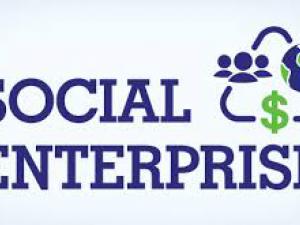GOOD PRACTICE - Social private company to provide marketing services and pre financing support (Ghana)
Discussion details

Establishing a social private company in which community members have shares to help them with marketing services, meeting of fair trade protocols (as applicable), providing pre-financing and packaging support.
Production pre-financing and warehousing services have an important impact on the quantities produced. Collective selling undermined the inability of producers to commit to future price levels. This is why, in the course of the EC funded project, a creative approach to improving chain governance was implemented. A social private company (the Shea Star Ltd: SSL) was set up in which the women have shares (through Star Shea Network, SSN). SSL offers marketing services to the numerous member groups, searches international markets for nuts and butter buyers and takes charge of the commercialisation of the shea products that the women sell in bulk. This approach enables progress on increased savings and investments. SSL also managed to process refined shea butter through a tolling arrangement in Europe before sale to final clients. This significantly increased the volume of the unrefined shea butter that women were able to sell.

SSL plays a major role in supporting and assisting women to fulfil the protocols for fair trade, organic and traceable shea products, as well as in providing them with some key inputs such as packaging and pre-financing. Transparency in the distribution of value added shares between SSL and women producers is ensured during the associations meetings. The project and women producer groups established contractual relationships to sell to major international buyers. The SSL helped to increase their number during the course of the project. Community association members participate in the negotiation and distribution within their network. They also supervise the quality of nuts and butter through a Quality Assurance System and participate in the aggregation of products at approved warehouses. Occasionally groups declined to process particular butter orders due to less motivating market prices. In other cases they bargained to receive higher prices thus proving their empowerment in analysing market prices.

Women producers can still sell their production to local markets or other buyers, but are committed to the arrangements with SSL. This is because bulk selling enables them to put their earnings to good use such as for the payment of school fees, the purchase of household assets, working and farming tools. Despite its holistic approach, the women’s associations and the project missed making arrangements with some support services such as transporters, owners of donkey carts, tricycles, “loading boys” who could have strengthened their place in the value chain. Regarding the question of whether the social enterprise model is working well, one could state that women producers are not always able to meet all orders from buyers. When this happens, they must buy nuts or butter from other women outside their community groups. This has resulted in interesting cascading effects because the required quality from the outside women pushed the beneficiaries to share with them their improved practices
________________________________________________________________________________
Identification of Innovative Approaches to Livelihood Enhancement, Equity and Inclusion of People Dependent on the Informal Economy
Volume 1: Good Practices and Lessons Learned
Extracted from 33 Projects Selected Under the 2009 EC call for Proposals:
“Investing in People. Promoting social cohesion, employment and decent work. Support for social inclusion and social protection of workers in the informal economy and of vulnerable groups at community level”
March 2016
By Jacques Charmes, Mei Zegers
Log in with your EU Login account to post or comment on the platform.